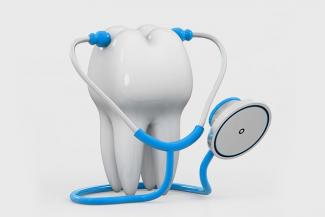
Dr Paromita Ganguli, Senior Dental Surgeon with Fortis, Calcutta, explains the correlation between diabetes and dental care, and how the former, if not controlled, can affect dental health adversely.
What are the most common oral health problems affecting persons with diabetes?
The stomatognathic system comprising the oral cavity, the lining mucosa, the dentition, the periodontium supporting bone muscles and nerves are usually all affected with diabetes.
The most common diseases are:
- Gingivitis
- Periodontitis
- Mucosititis
- Fungal Infection, e.g., candidiasio
- Rampant caries
- Dry mouth
- Lichen planus
How does diabetes affect your gums?
Persistent and uncontrolled diabetes cause inflammation and injury to the gums. This in turn causes swelling of gums, bleeding from gums. Recurrent gum infections at times lead to recession of gums and bone loss.
How does gum disease in turn affect blood glucose levels?
Periodontitis or gum disease and diabetes have a two way relationship. There is a release of certain chemical microflora and the periodontitis (gum diseases) causing bacteria which leads to increased blood glucose levels. The mechanism involves immune modulation. A healthy gum condition helps in bringing down blood glucose levels.
Related Reading - 10 Tips To Good Oral Health
What can lead to mouth problems (such as dry mouth, thrush etc.) seen in diabetic patients?
Dry mouth, burning mouth and thrush or candidiasis are indicative of uncontrolled or impaired glycemic control. Increased blood sugar levels, anti-diabetic medications, dehydration and reduced salivary flow are the causal factors.
Do diabetic patients have bad teeth? If yes, can you explain why?
Diabetic patients do not have bad teeth per se. Uncontrolled diabetes makes them vulnerable to dental diseases.
Many believe that children with diabetes have greater risks for cavities. Is that true?
The type of diabetes usually affecting children and adolescents is Type 1 diabetes and is a life-long and chronic disease. Children are prone to bacteria growth in mouth. The resultant plaque buildup causes both cavities and gum diseases.
What can one do to prevent dental problems associated with diabetes?
Awareness is the first step in the prevention of diseases. Oral and periodontal health management should be an integral part of diabetes management. A good glycemic control, good oral hygiene and regular dental check up go a long way to prevent and control the dental diseases.
What are dental implants? Are diabetic patients eligible for it?
Dental implants are widely used procedure for dental rehabilitation. It requires integration of a part of implant system in the bone. A well-controlled diabetes with a good oral hygiene status can go in for the procedure with good and predictive results. Smoking has a significant adverse role in survival of implants.
Does any type of dental surgery put a diabetic patient more at risk for infections?
A person with a stable diabetes condition can safely undergo routine dental procedure without modifications in treatment planning. Dental treatment should be planned with good glycemic control. Diabetes increases chances of infection and retards healing. Tooth extractions, drainage of extractions, dental procedures under general anaesthesia hold the diabetes patient at risk due to infectious complications.
How can a dentist help? What oral hygiene advice do you give your patients?
First and foremost the dentist should focus on a holistic approach along with the physician in providing the basic care in proper glycemic control. My advice would be ‘Prevention is the best cure’ along these lines:
- Control of blood sugar levels
- Healthy fibre rich diet
- Avoid smoking
- Regular brushing and flossing
- Use non-alcoholic mouthwash
- Clean the prosthesis very well in case one uses them
- Regular periodic checkups
- Any problem should be promptly attended to
Related Reading:
Oral Health and Chronic Health Conditions














